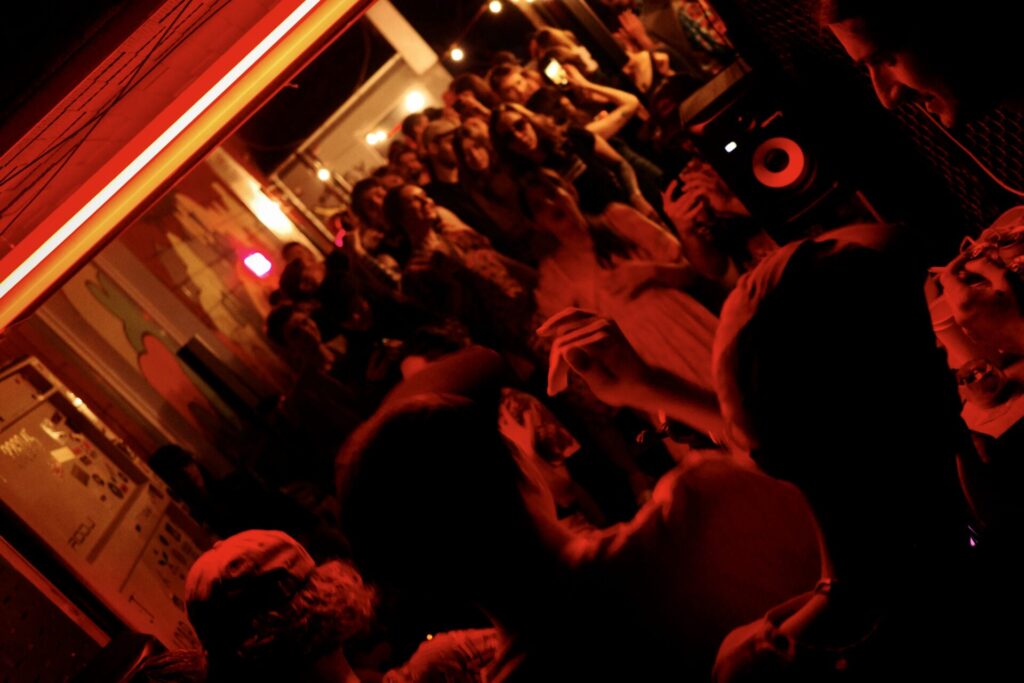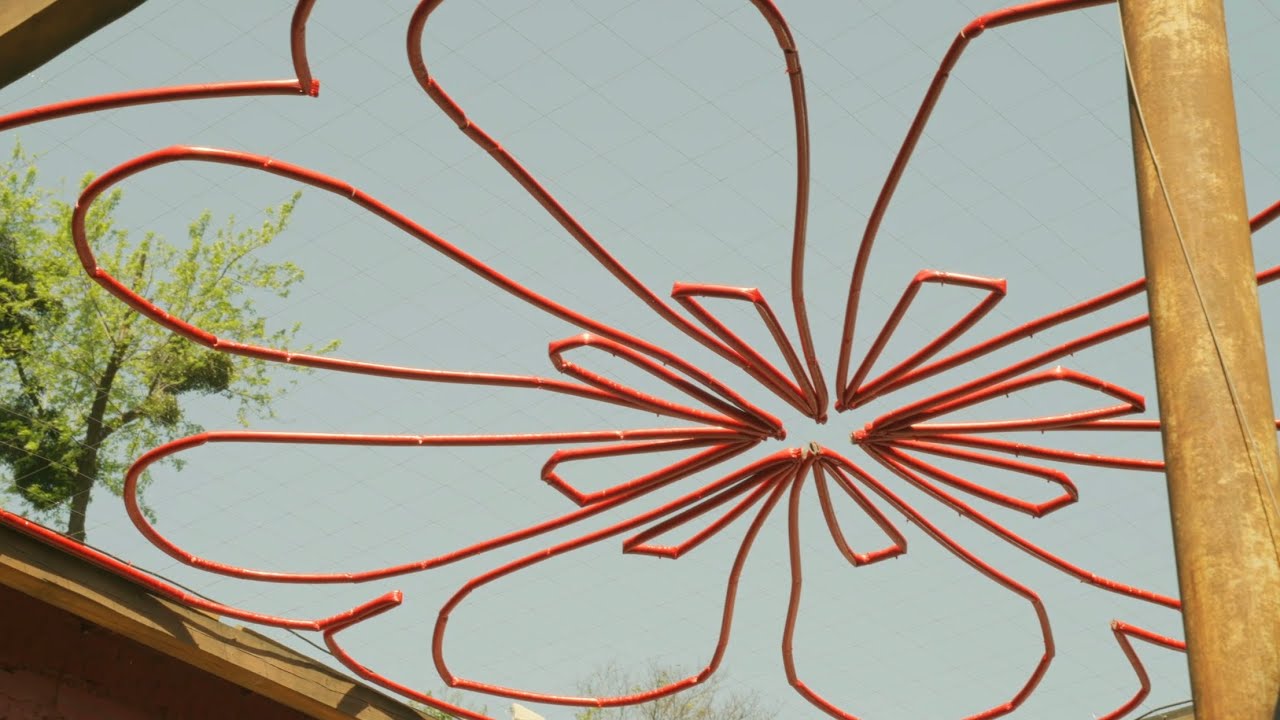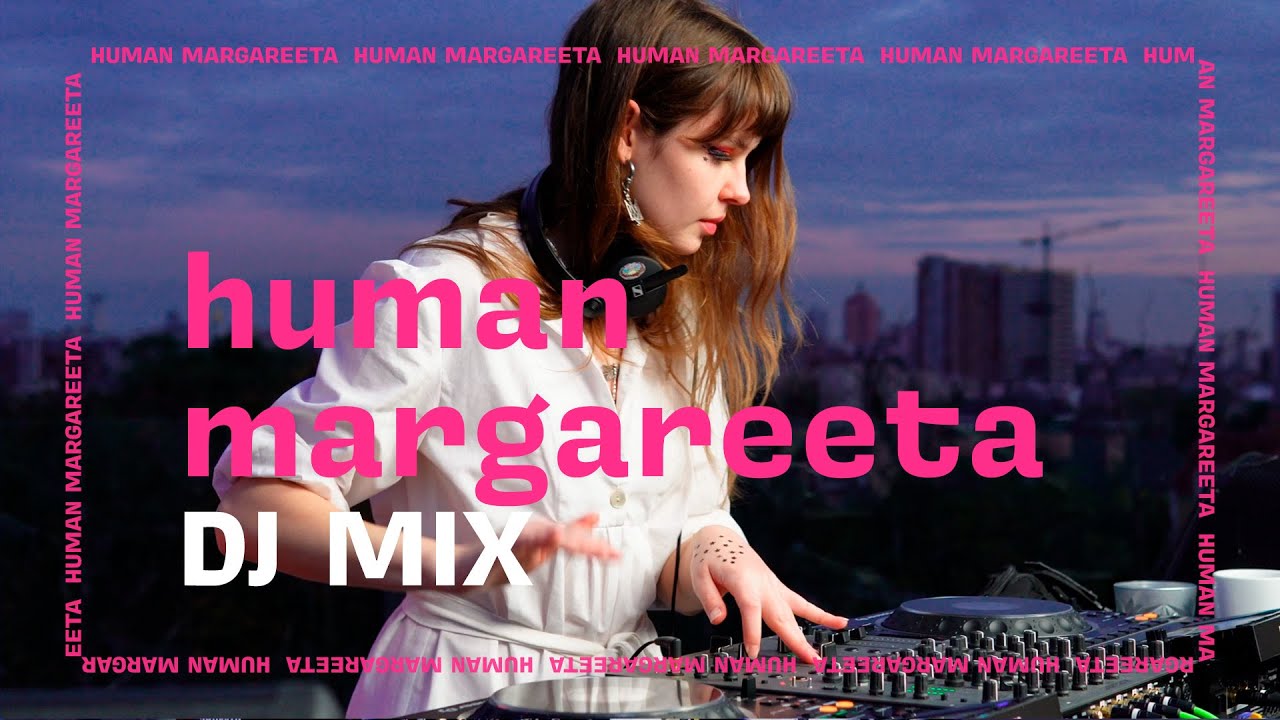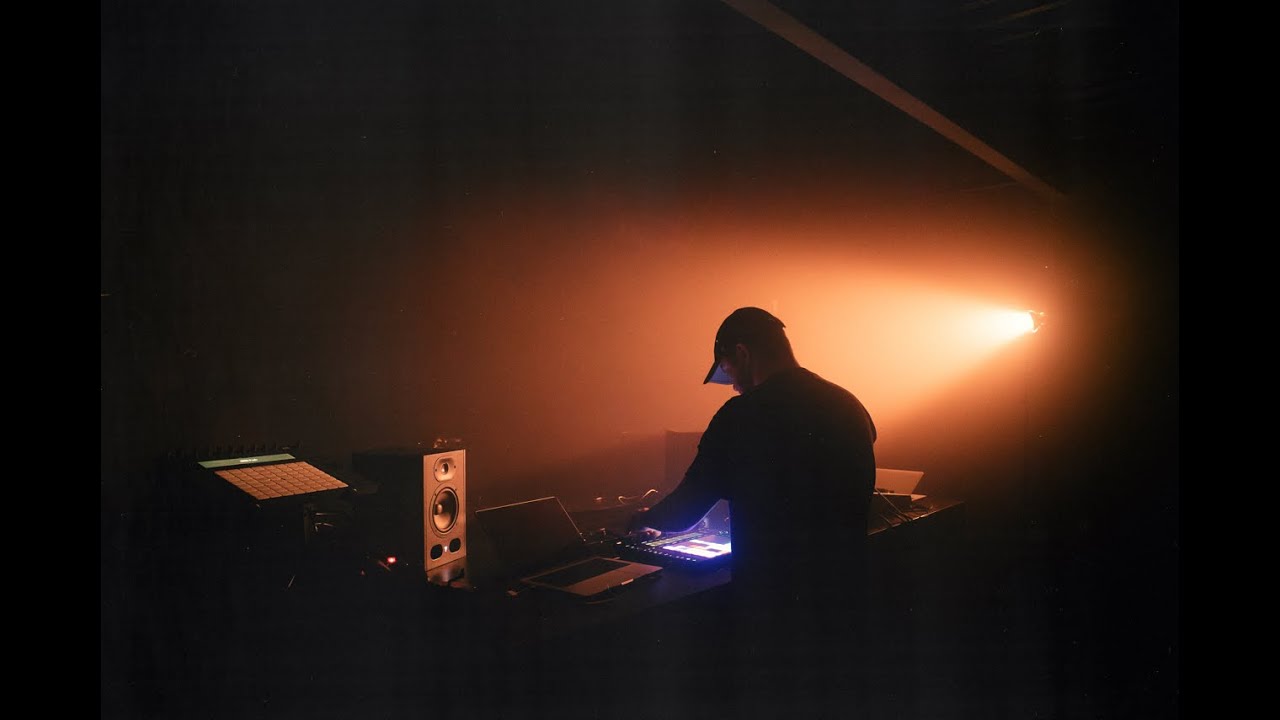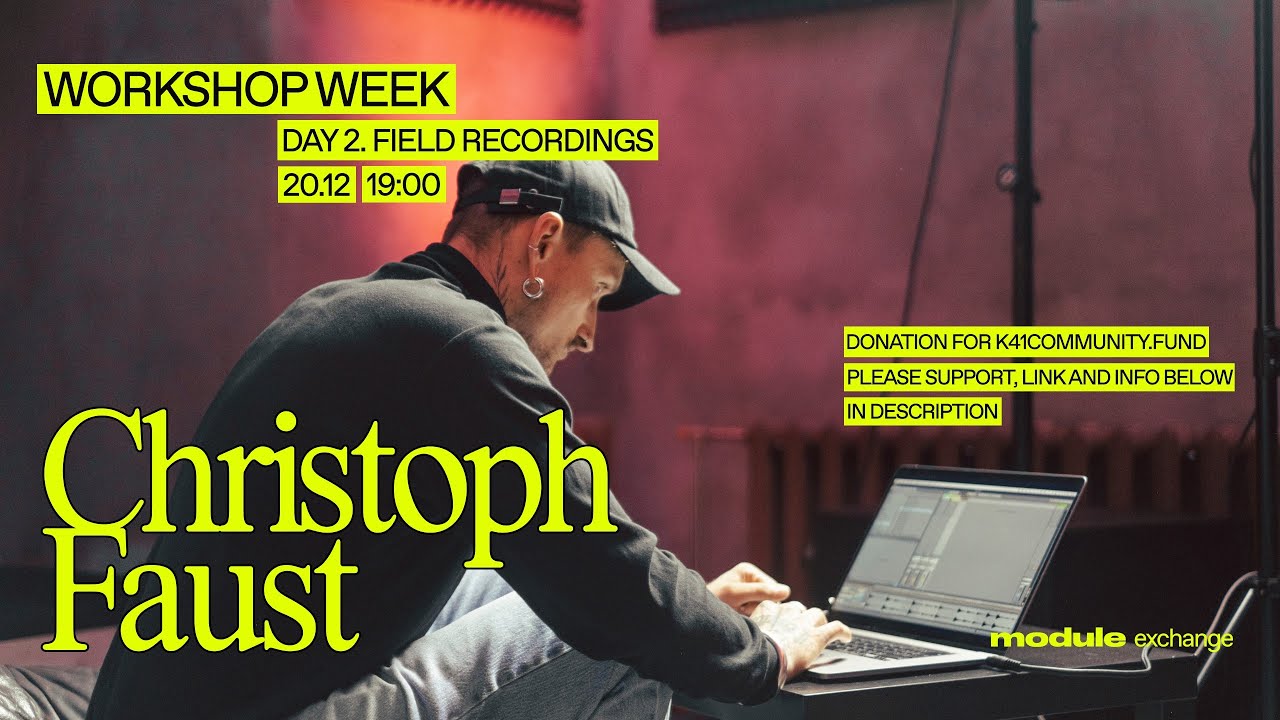For this piece, I invited a co-author, my Neformat colleague Kseniia Yanus. Kseniia is a musician and a journalist, and an active participant in Kyiv’s musical life. She attends different music schools and projects, and arranges ‘speed dates’ for music professionals at festivals and round tables. Kseniia also works in the influential Otelʼ club. She and her husband previously ran a small music label; currently, the couple put all their energies into developing the Ukrainian noise scene.
Not everything in Ukraine’s music scene revolves around the record labels mentioned in our last article like BE₴HKET and electricity. In this piece, we look at other music players, like DIY radio-stations, small event series, or music schools. All form vibrant communities around themselves. They offer friendship and support to new music talents but often with fewer catches, allowing a more open and creative relationship with artists. At the same time, some of these players have the potential to become a new basis for the modern Ukrainian music infrastructure.
“The Nyzhnoyurkivska phenomenon”
“Nyzhnoyurkivska”, the revitalised space that once housed a ribbon-weaving factory in Kyiv, is now a cradle for experimental musical projects. The complex on Nyzhnoyurkivska’s street contains at least 10 spaces hosting music clubs, rehearsal studios, a photo studio, a dressing room and a concert clothing rental, and even a vintage sofa store and DIY waste recycling station. This cultural hub started to develop back in 2013 with premises rented out for art projects, or rehearsal spaces.
The Otelʼ club is primarily responsible for representing the punk and metal scene at Nyzhnoyurkivska. The Closer club is one of the key places for developing Ukrainian techno culture, while the Mad Cat club tends to support the plethora of raw but fresh talent from a younger generation. The space holds events such as the Electronic festival ‘Strichka’ in 2023, as this video shows.
And in this space, back in 2016, our Quietus and British Council project partners emerged – 20ft Radio. Vitaliy Nemchenko, co-founder and international project curator, states that the main mission of the 20ft Radio project was to “create a radio station where you can listen to high-quality independent music without advertisements and annoying presenters, unite the community and provide a space for self-expression to artists who want to play something outside the framework of formal dance music.”
The radio was based in a container for transporting goods, initially created as a showroom for the backpack brand ‘Pilsok’. Last year it moved a few blocks away from Nizhnoyurkivska to a small garden on Kyrylivska Street. The station still acts as a unifying space for different parts of the music community. Vitaliy Nemchenko: “For example, one day you can hear bass-oriented music from Cutiecore residents, and tomorrow – a live concert by young indie bands like ріхтер (Richter). All of this is broadcast and archived on the radio website and social networks.”
The queer-friendly feminist collective Cutiecore is a good example of the scene that 20ft Radio champions. The show below is a live performance by human margareeta – an electro and breakbeat DJ, promoter, and electronic producer. She’s the mother of a scene which is focused on bass music and stays genre fluid.
The 20ft Radio community consists of differently skilled music enthusiasts, all with unique approaches to writing and performing music. They created a trusted group around the station over the years, regularly producing material and developing their own formats in the electronic music genre. However, our heroes continue to experiment with new faces who expand the borders of the local electronic scene. It’s a process mirrored by the listeners, who constantly grow and diversify with time. Vitaliy Nemchenko once more: “20ft Radio has always helped discover new names. We experimented with formats, gave the opportunity to schoolchildren to host their shows on the radio, or arranged and will continue to arrange open jam sessions, where musicians playing in different genres and at different technical levels could come and join in.”
Starting from the radio shows in a simple metal container, 20ft Radio now collaborates with different Kyiv locations, holds showcases for labels and formations like Ornithology, Mystictrax, Iriy, and Pep Gaffe, works with international festivals such as Nuits Sonores та Iskra, and participates in the European media network ‘Reset!’, alongside many other initiatives.
Exchanging knowledge
Currently, there is no institutional education programme in the field of electronic music in Ukraine.Therefore private schools, like Module Exchange, have a big impact on the emergence of new bright new music talents. Though there is more to it; Module Exchange develops not only artists but also an educated audience capable of appreciating complex and interesting music, which in turn enriches the music scene and contributes to community development.
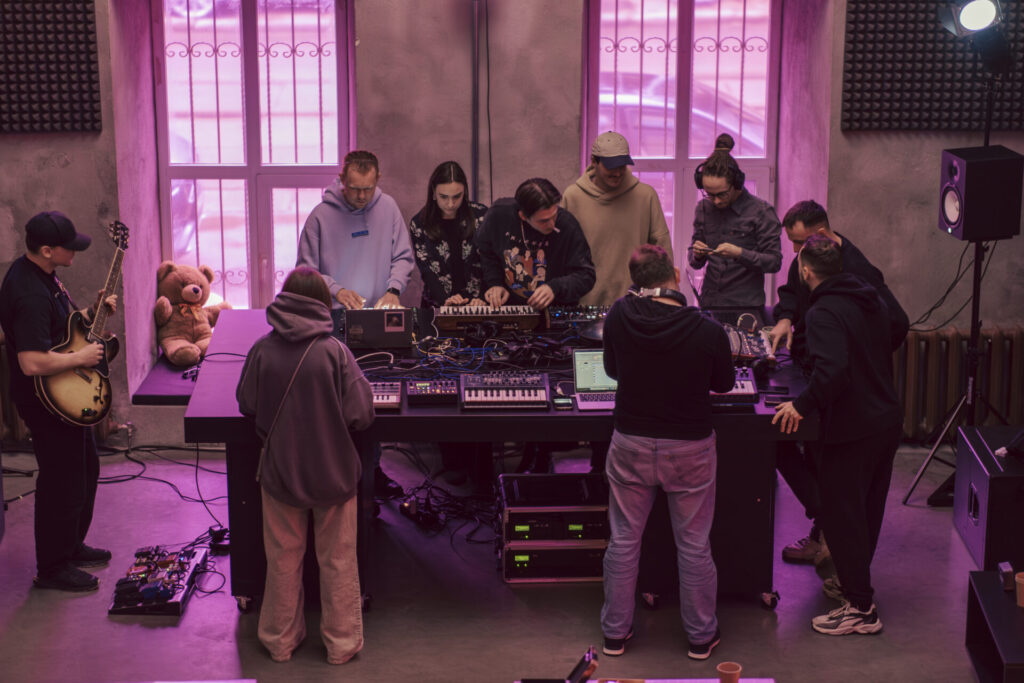
The school started with the Kyiv-based Module formation project, (not to be confused with the Dnipro club, Module), which initially showcased only live artists performing, and no DJ sets. At some point, the line-ups started repeating, so the idea turned into expanding the circle and teaching music to other people who might be interested in it. Module spokesperson: “The team constantly exchanged knowledge, machines, and modules. It is a very organic process, many electronic musicians learn in this way, due to the lack of institutional education in the field of electronic music, especially in Ukraine.”
For instance, one of Module Exchange’s co-founders, Nastya Vogan, has experience in classical music education and knowledge of electronics as a practising artist. On joining the school, she influenced the Module Exchange course, which now looks to form a new type of music education; not only in Ukraine, but also around the world.
The school gathers a community around itself, where learning in a group and communicating with like-minded people (both beginners and teachers are directly engaged) becomes easier and more interesting. According to the team, understanding music is, among other things, just interesting. It does not push you to become a musician, but is crucial as a step in enjoying interesting, complex music. The school believes that, “The more artists, audiences, amateurs, just people who jam at home, the richer the scene will be.” The video shows the TYRO, Module Exchange graduation party XVII
Module Exchange students often stay friends after classes, rent studios together, and play at Sunday jams. To give them an opportunity to be heard, the team organises the SPOTLIGHT performances series. For this school community, live events are, firstly, an opportunity to get together and just be yourself. Bright new names like äsc3ea or noorj were discovered thanks to these series.
Moreover, the school realises the difficulty of building relationships with the outside world. In order to achieve this aim, Module holds master classes with those foreign artists who boldly come to Ukraine in these dangerous times.This knowledge is also online. An example is German DJ and producer Christoph Faust, who gave a Module Exchange masterclass on the topic of field recordings
A full-scale invasion poses new challenges every day for every Ukrainian project, and Module Exchange is no exception: “We believe that we have no other option than to grow through the crisis. The Ukrainian electronic scene was moving at a very fast pace for a few years before the full-scale invasion began, and now it is thriving against all odds. This is possible thanks to the titanic efforts of people who create it. […] It’s no secret that we’re stronger when we unite around what we have in common than when we get into arguments about where we’re different, and electronic music seems to be doing that right now.”

